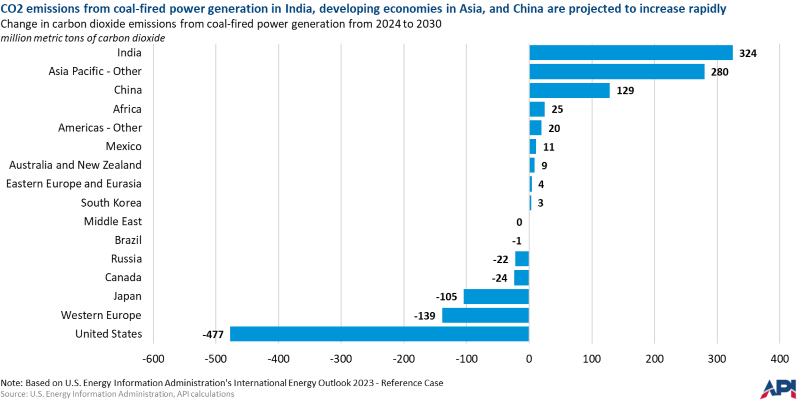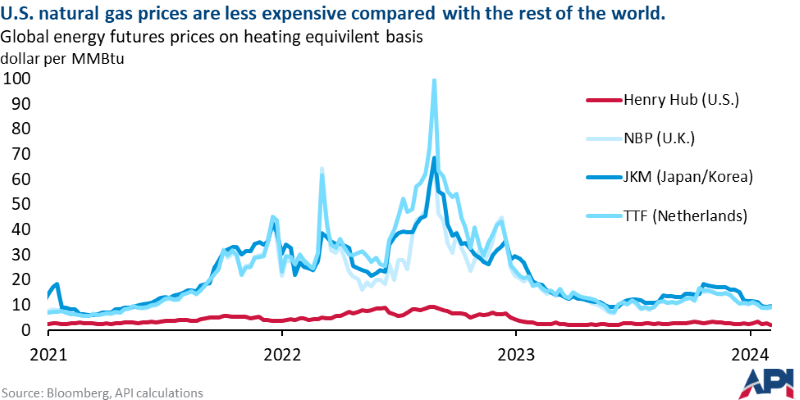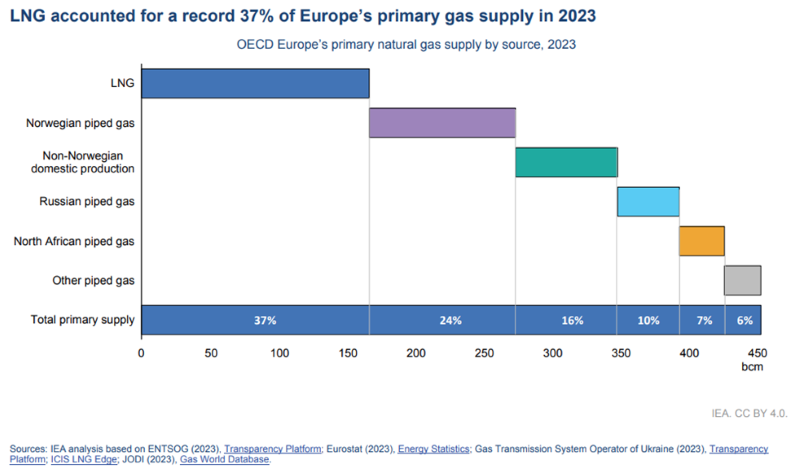Five Questions for the Administration on LNG Freeze
202.682.8114 | press@api.org
The Senate Energy and Commerce Committee will hold a hearing this morning to examine the consequences of the Biden administration’s recent decision to freeze permitting for U.S. LNG. This politically motivated decision is generating a lot of questions, including in the news media, which is highlighted in a new video released today from API. Below are five key questions Senators should ask the administration.
- Wasn’t the Biden administration in favor of U.S. LNG before it was against it?
- Senior Biden administration officials—including Deputy Energy Secretary David Turk who is testifying before the committee—have previously recognized the critical role of U.S. LNG in supporting America’s allies, U.S. jobs and global climate progress:
- U.S. Energy Secretary Jennifer Granholm: “I believe U.S. LNG exports can have an important role to play in reducing international consumption of fuels that have greater contribution to greenhouse gas emissions.”
- U.S. Secretary of State Antony Blinken: The U.S. is “now the leading supplier of LNG to Europe to help compensate for any gas or oil that it’s losing as a result of Russia’s aggression against Ukraine.”
- Deputy Energy Secretary David Turk: “We’re a democracy; we're the leader of the free world. I think it's a much better outcome for Japan or others to get their energy supplies from the U.S. than to get it from Russia or other countries.”
- While emissions are declining in the U.S., they are rising globally, and coal use is reaching an all-time high. Won’t the LNG freeze work against reducing coal consumption and set environmental progress back?
- Natural gas emits 50% less CO2 than coal, and the switch from coal to natural gas in the power sector is a key reason the U.S. leads the world in reducing CO2 emissions. From 2005 through 2021, fuel switching from coal to natural gas accounted for more than 60% of CO2 reductions in the U.S. power sector.
- It’s estimated that global coal consumption reached an all-time high in 2023 with countries like China and India continuing to build new coal-fired power plants. By 2024, three out of every four tons of coal consumed will occur in China, India and Southeast Asia.
- The projected buildout and continued use of coal-fired power plants in places like Southeast Asia is so large that it negates the expected progress in reducing coal-use associated emissions in the United States and Europe, according to the U.S. Energy Information Administration.
- Expanding U.S. LNG means increased domestic production, a well-supplied global market and more jobs here at home. Isn’t the LNG pause more of a delay tactic than it is an attempt to “review” the clear and obvious benefits of U.S. LNG for the American economy and consumers?
- U.S. natural gas prices remain among the lowest in the world, according to the International Energy Agency. While U.S. LNG shipments reached record highs in 2023, domestic prices tumbled 62% from the 2022 annual average as U.S. natural gas production also surged to record levels.
- The U.S. natural gas and oil industry supports nearly 11 million American jobs and contributes upwards of $2 trillion to the economy. U.S. LNG is critical to sustaining these growing economic contributions. A recent study estimated that meeting President Biden’s pledge to supply Europe with U.S. LNG would: support an average of 71,500 jobs each year from 2025 to 2030 and contribute a total of $46 billion to the U.S. economy.
- Does the Biden administration still support U.S. LNG as a means to help Europe transition away from Russian natural gas?
- Following Russia’s invasion of Ukraine, President Biden pledged “to ensure additional EU market demand for 50 billion cubic meters of LNG from the United States annually by 2030.”
- In 2022, the U.S. surged more than 800 LNG cargoes to Europe – a 141% increase from 2021, but permitting delays jeopardize America’s ability to sustain this commitment and fulfill the Biden administration’s pledge. Both Europe and Asia face long-term natural gas supply gaps that threatens their energy security, according to recent studies.
- Roughly 10% of the EU’s natural gas supplies still comes from Russia.
- Isn’t it true that the Department of Energy commissioned six different studies on U.S. LNG over the past decade and that the administration’s decision to freeze permits while another is conducted is more about politics than sound policymaking?
- The Department of Energy has studied U.S. LNG at least six different times in the last decade and the research consistently showed clear national security, economic and environmental benefits of U.S. LNG.
- Washington Post: “...an election-year sop to climate activists...”
- Wall Street Journal: “...raw political payoff to the climate left...”
- The Economist: “...it was all about politics...”
API represents all segments of America’s natural gas and oil industry, which supports nearly 11 million U.S. jobs and is backed by a growing grassroots movement of millions of Americans. Our approximately 600 members produce, process and distribute the majority of the nation’s energy, and participate in API Energy Excellence®, which is accelerating environmental and safety progress by fostering new technologies and transparent reporting. API was formed in 1919 as a standards-setting organization and has developed more than 800 standards to enhance operational and environmental safety, efficiency and sustainability.
###





